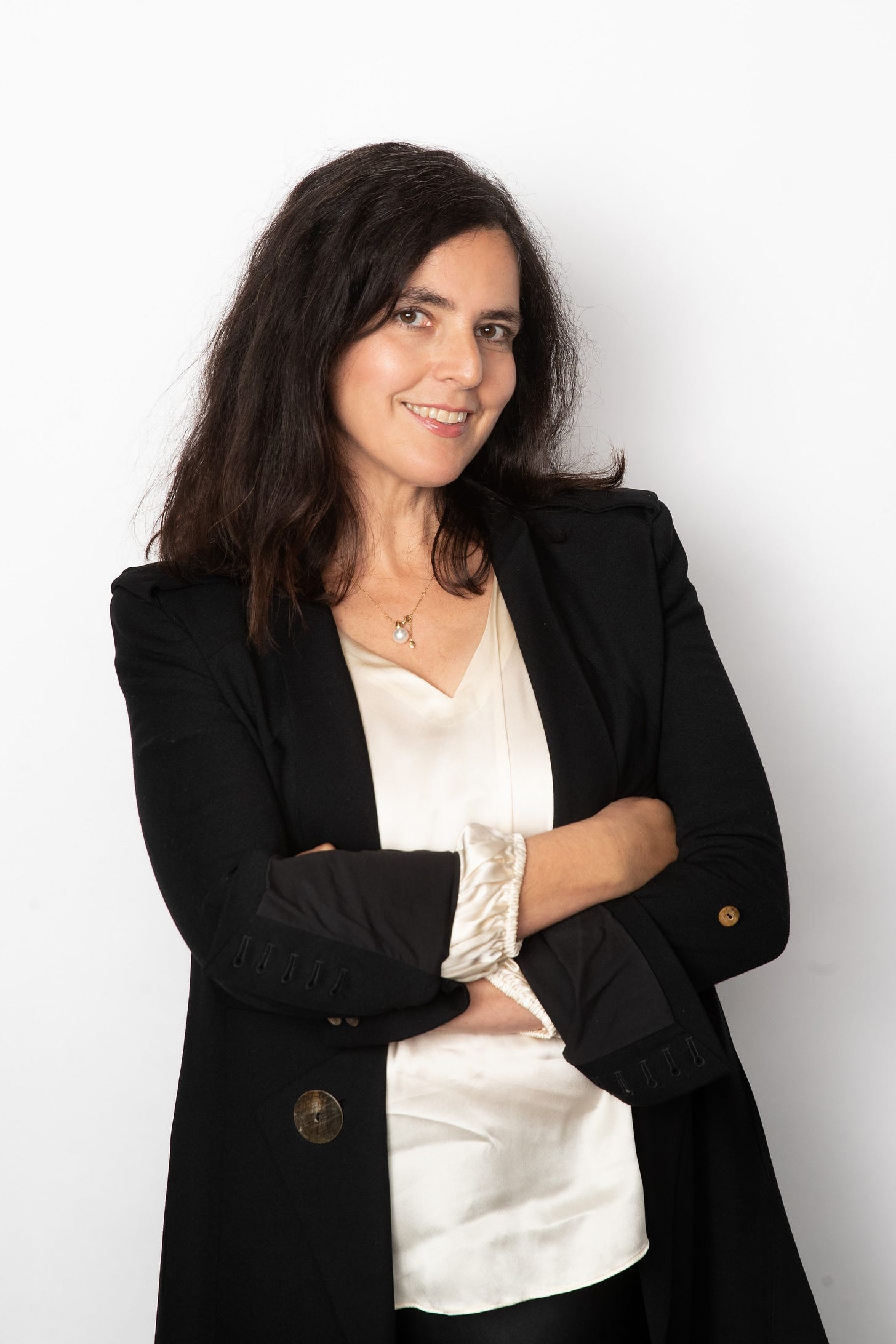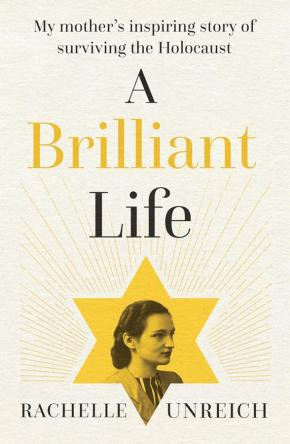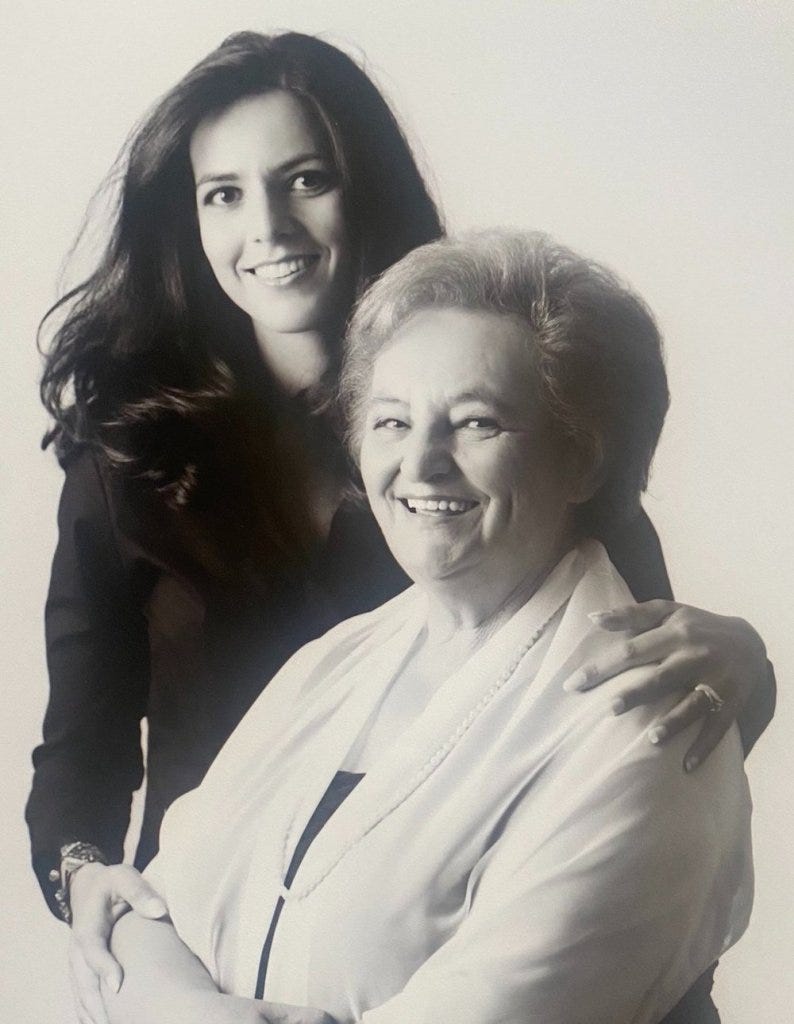Rachelle Unreich on the joys of meeting the many readers of her debut, a biography of her remarkable mother
A Brilliant Life tells the story of Mira, who survived the Holocaust, immigrated to Australia and thrived for another seven decades.
It was my first book, so there were a lot of firsts. The first time I heard from an overseas reader was when a young woman — she looked to be a recent college graduate – sent me a DM on Instagram. Savannah’s message began: “I just finished your book A Brilliant Life and I could not give it five stars fast enough.” A Brilliant Life is about my remarkable mother Mira, who survived four concentration camps at the age of 17, and the lessons of strength and joy that she taught me. It is often called a “Holocaust” book, but to me it is about so many other things. The profound and deep connection that can exist between mothers and daughters. The grief and loss felt when a parent dies. It’s about faith, because Mira never lost hers – she famously said that “the Holocaust taught me about the goodness of people” – and she was a God-fearing, human-loving, life-embracing person until the day she died at the age of 89. And it’s about miracles and mysteries, those strange occurrences that we don’t understand but that leave us bewildered about the universe’s machinations. Savannah, it seemed, got all of it. “I am not sure what compelled me to pick up [your book] in Sam’s Club last week; it was a gravitational pull, maybe another one of those unknown forces…Through the entire story I felt as if I was walking beside your mother,” she wrote. And, she added sweetly, “I now have a new profound interest in Judaism; I have never before been told of the beautiful traditions and familial values held so closely to your faith.”
Writing A Brilliant Life had already given me so much. A new lease of life as an author, having worked exclusively as a journalist for four decades. A sense of completion and justice, as I brought the story of my murdered ancestors to life, ensuring they would never be forgotten. Personal satisfaction, to fulfill a goal that I’d held aloft for many years. But I’d never expected this:making connections with strangers through words. I had given them something, it seemed, with mine. But they have rewarded me so much with theirs, creating invisible linked threads all around the world: to Switzerland, Germany, Japan, the UK, Canada, Israel and the US from my desk in Melbourne, Australia.
Perhaps this feels especially sweet as the world around me erupts, its pieces feeling ever more fragmented. A Brilliant Life first hit bookshelves in Australia on November 1, 2023, just a few weeks after the massacre of October 7 in Israel, and as I began publicizing it that same month, I was increasingly asked to comment on antisemitism – which was both one of the themes of my book and happening all around me in real time. I was constantly aware of hate on the streets: the Jewish high school I’d attended was graffitied with the words “Jew Die” on it, and the security detail was ramped up at my local synagogue. Yet the readers I was hearing from were kind and empathetic, offering a stream of supportive words when they met me. They reached out to me politely and tenderly. They offered thanks, over and over. And they let me know the ways our lives overlapped: they had grandparents who fled Poland. They shared a birthday with my mother Mira. They felt alone in the world after their parents had died. Sometimes, they were funny. “I am the only person sitting on a train wearing sunglasses on this overcast day…I am trying to hide my ugly, crying face and mascara that must be at my jawline by now. Your book has made me weep.” They are intimate, these missives that land in my inbox at all hours. Sometimes, I wonder if they are shocked by my response, which is just as effusive and wordy as their own.
Phil wrote to me about his elderly mother who “would cheekily hide in the garden and whistle at me when I returned home from work.” Fleur wrote to me about her mother, who like Mira died from ovarian cancer, and whose own joy saw her dressing up as a hospital clown for patients even though she was undergoing her own cancer treatment. Others told me how Mira helped them through their own challenges. Frances, undergoing radiation, said she kept repeating Mira’s words over and over again, like a mantra. In the book, I ask my mother how she managed to keep moving forward after the war, rather than collapse in a heap and despair. She responded that she had made a choice to look ahead: “I knew that was in the past, and I had a future to live.” Frances began saying the same thing to herself whenever she had punishing treatments to face.
Readers have shown up to my events bearing gifts: with chocolates and biscuits [cookies] and homemade jams. (The orange and cumquat jam is such a personal favourite that I finished it much too quickly, spooning it straight from the jar.) Sometimes readers pick up clues from the book, and I’ve been presented with my mother’s almond horseshoe biscuits on several occasions, and her poppyseed cake twice. At a Country Women’s Association luncheon, one woman had baked a challah, despite never tasting one before; she followed a recipe she’d found on YouTube. An American woman hand-crafted a blue suede bookmark for me, adorned with an embroidered blue bird, since a blue bird is the sign that reminds me of my mother’s presence in my life, even after her death. In so many different ways – through emails and letters and food and presents – readers have shown up for me. I have stayed in touch with some of them; I have forged strong connections with others, inviting them into my late mother’s home where I host occasional book events to talk about Mira. A teacher, Andrew, joined me for a service at synagogue for the Jewish festival of Shavuot in June; it turned out that his paternal grandmother was Jewish, and it brought back memories of attending services with her as a young child.
I never realised how much I had in common with so many different people, or the extent to which they would be a part of publishing my book. I think of writing as being mostly a solo exercise, despite the fact that I had an agent, publisher, editor and various others all helping it along the way. I didn’t count on the fact that readers would turn my book into something that felt alive, or that they would help me tackle the obstacles that got me writing it in the first place.
When I first sat down at my computer to tap out the earliest pages, I primarily did so because I was weighed down in a sheath of mourning that I had not been able to completely shed, even three years after my mother’s death. I wrote for the same reasons I always write: to navigate a path, to make sense of something puzzling, to unload. I did not know, when I started back then in my city’s sixth pandemic lockdown, that publishing those words and having other people read them would transform that grief into something else. That finally I would learn Mira’s lessons in practice. The world relies on people being able to seek commonalities between one another, to bridge differences. The only way to live harmoniously is to understand that division and mistrust and hatred aren’t the answer; connection is. Without my readers, I might never have really felt its power.
Photo of Rachelle Unreich by Simon Schluter
Rachelle Unreich has been a journalist for almost 40 years, writing for publications in Australia, the U.S. and U.K., including Harper’s Bazaar, Elle, Rolling Stone, The Sydney Morning Herald and The Age newspaper. Her first book, A Brilliant Life: My Mother’s Inspiring True Story of Surviving the Holocaust, was first published in November 2023 in Australia, New Zealand, the US and Canada, and has since been published in the UK. It has been shortlisted for four literary prizes.







Thank you Bill for giving my essay a platform and letting readers everywhere know how important they are to writers.
Rachelle , I will read your book and submit a story to be published . I wrote mostly for myself and have a fear of submitting my work .